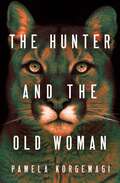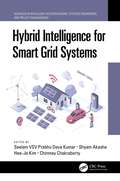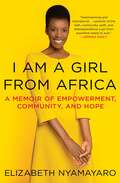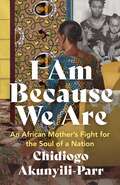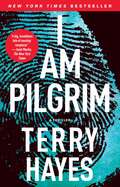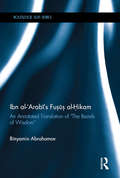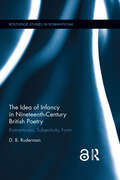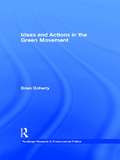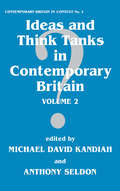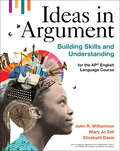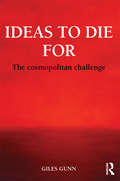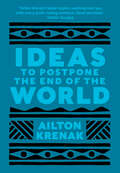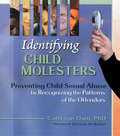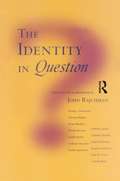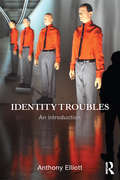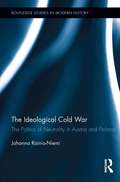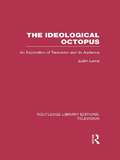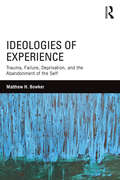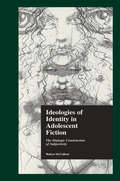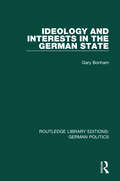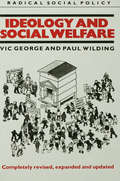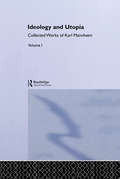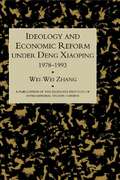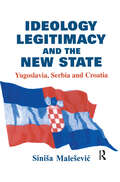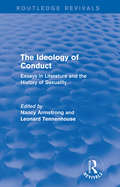Special Collections
Benetech’s Global Certified Accessible Titles
Description: Benetech’s GCA program is the first independent third-party EPUB certification to verify ebook accessibility. By creating content that is born accessible, publishers can meet the needs of all readers. Learn more: https://bornaccessible.benetech.org/
- Table View
- List View
The Hunter and the Old Woman
by Pamela KorgemagiThe intertwined story of a cougar and a man that portrays the strength, vulnerability, and consciousness of two top predators. Not since Life of Pi have we encountered such transcendence or walked so fully in the footsteps of a big cat.
The “Old Woman” lives in the wild, searching for food, raising her cubs, and avoiding the two-legged creatures who come into her territory. But she is more than an animal — she is a mythic creature who haunts the lives and the dreams of men. Joseph Brandt has been captivated by the mountain lion’s legend since childhood, and one day he steps into the forest to seek her out. A classic in the making, The Hunter and the Old Woman is a mesmerizing portrait of two animals united by a shared destiny.
Hybrid Intelligence for Smart Grid Systems
by Seelam VSV Prabhu Deva KumarThis book provides an overview of distributed control and distributed optimization theory, followed by specific details on industrial applications to smart grid systems. It discusses the fundamental analysis and design schemes for developing actual working smart grids and covers all aspects concerning the conventional and nonconventional methods of their use. Hybrid Intelligence for Smart Grid Systems provides an overview of a smart grid, along with its needs, benefits, challenges, and existing structure and describes the inverter topologies adopted for integrating renewable power, and provides an overview of its needs, benefits, challenges, and possible future technologies. This pioneering book is a must-read for researchers, engineering professionals, and students, giving them the tools needed to move from the concept of a smart grid to its actual design and implementation. Moreover, it will enable regulators, policymakers, and energy executives to understand the future of energy delivery systems towards safe, economical, high-quality power delivery in a dynamic and demanding environment.
I Am a Girl from Africa
by Elizabeth NyamayaroA &“profound and soul-nourishing memoir&” (Oprah Daily) from an African girl whose near-death experience sparked a lifelong dedication to humanitarian work that helps bring change across the world.When severe drought hit her village in Zimbabwe, Elizabeth Nyamayaro, then only eight, had no idea that this moment of utter devastation would come to define her life&’s purpose. Unable to move from hunger and malnourishment, she encountered a United Nations aid worker who gave her a bowl of warm porridge and saved her life—a transformative moment that inspired Elizabeth to dedicate herself to giving back to her community, her continent, and the world. In the decades that have followed, Elizabeth has been instrumental in creating change and uplifting the lives of others: by fighting global inequalities, advancing social justice for vulnerable communities, and challenging the status quo to accelerate women&’s rights around the world. She has served as a senior advisor at the United Nations, where she launched HeForShe, one of the world&’s largest global solidarity movements for gender equality. In I Am a Girl from Africa, she charts this &“journey of perseverance&” (Entertainment Weekly) from her small village of Goromonzi to Harare, Zimbabwe; London; New York; and beyond, always grounded by the African concept of ubuntu—&“I am because we are&”—taught to her by her beloved grandmother. This &“victorious&” (The New York Times Book Review) memoir brings to vivid life one extraordinary woman&’s story of persevering through incredible odds and finding her true calling—while delivering an important message of hope, empowerment, community support, and interdependence.
I Am Because We Are
by Chidiogo Akunyili-ParrIn this innovative and intimate memoir, a daughter tells the story of her mother, a pan-African hero who faced down misogyny and battled corruption in Nigeria. Inspired by the African philosophy of Ubuntu — the importance of community over the individual — and outraged by injustice, Dora Akunyili took on fraudulent drug manufacturers whose products killed millions, including her sister. A woman in a man’s world, she was elected and became a cabinet minister, but she had to deal with political manoeuvrings, death threats, and an assassination attempt for defending the voiceless. She suffered for it, as did her marriage and six children. I Am Because We Are illuminates the role of kinship, family, and the individual’s place in society, while revealing a life of courage, how community shaped it, and the web of humanity that binds us all.
I Am Pilgrim
by Terry Hayes&“I Am Pilgrim is simply one of the best suspense novels I&’ve read in a long time.&” —David Baldacci, #1 New York Times bestselling author &“A big, breathless tale of nonstop suspense.&” —Janet Maslin, The New York Times &“The pages fly by ferociously fast. Simply unputdownable.&” —BooklistA breakneck race against time…and an implacable enemy. An anonymous young woman murdered in a run-down hotel, all identifying characteristics dissolved by acid. A father publicly beheaded in the blistering heat of a Saudi Arabian public square. A notorious Syrian biotech expert found eyeless in a Damascus junkyard. Smoldering human remains on a remote mountainside in Afghanistan. A flawless plot to commit an appalling crime against humanity. One path links them all, and only one man can make the journey. Pilgrim.
Ibn Al-Arabi's Fusus Al-Hikam
by Binyamin AbrahamovIbn al-Arabi’s Fusus al-Hikam is a translation of one of the most important works written on Islamic Mysticism. Muhyi al-Din Ibn al-Arabi (1165-1240) is deemed the greatest mystic of Islam and his mystical philosophy has attracted the attention of both Muslims and non-Muslims from his time to the present day. Believing that the world is the self- manifestation of God, he claimed that all religions are equal and that the perfect human being is he who knows all the religious phenomena in the world. Fusus al-hikam examines the singular characteristics of twenty seven prophets of Islam and constitutes the best summary of Ibn al-Arabi's thought. The translation of these twenty seven chapters is preceded by an introduction that explains the main ideas of Ibn al-Arabi and is accompanied by explanatory notes to the text. Providing an easily accessible translation of one of the greatest mystics of Islam, Ibn al Arabi’ Fusus al-Hikam is essential reading for students, scholars and researchers of Islamic Philosophy, Mysticism and Islamic Mysticism in particular.
The Idea of Infancy in Nineteenth-Century British Poetry
by D.B. RudermanThis book radically refigures the conceptual and formal significance of childhood in nineteenth-century English poetry. By theorizing infancy as a poetics as well as a space of continual beginning, Ruderman shows how it allowed poets access to inchoate, uncanny, and mutable forms of subjectivity and art. While recent historicist studies have documented the "freshness of experience" childhood confers on 19th-century poetry and culture, this book draws on new formalist and psychoanalytic perspectives to rethink familiar concepts such as immortality, the sublime, and the death drive as well as forms and genres such as the pastoral, the ode, and the ballad. Ruderman establishes that infancy emerges as a unique structure of feeling simultaneously with new theories of lyric poetry at the end of the eighteenth century. He then explores the intertwining of poetic experimentation and infancy in Wordsworth, Anna Barbauld, Blake, Coleridge, Erasmus Darwin, Sara Coleridge, Shelley, Matthew Arnold, Tennyson, and Augusta Webster. Each chapter addresses and analyzes a specific moment in a writers’ work, moments of tenderness or mourning, birth or death, physical or mental illness, when infancy is analogized, eulogized, or theorized. Moving between canonical and archival materials, and combining textual and inter-textual reading, metrical and prosodic analysis, and post-Freudian psychoanalytic theory, the book shows how poetic engagements with infancy anticipate psychoanalytic and phenomenological (i.e. modern) ways of being in the world. Ultimately, Ruderman suggests that it is not so much that we return to infancy as that infancy returns (obsessively, compulsively) in us. This book shows how by tracking changing attitudes towards the idea of infancy, one might also map the emotional, political, and aesthetic terrain of nineteenth-century culture. It will be of interest to scholars in the areas of British romanticism and Victorianism, as well as 19th-century American literature and culture, histories of childhood, and representations of the child from art historical, cultural studies, and literary perspectives. "D. B. Ruderman’s The Idea of Infancy in Nineteenth-Century British Poetry: Romanticism, Subjectivity, Form is an interesting contribution to this field, and it manages to bring a new perspective to our understanding of Romantic-era and Victorian representations of infancy and childhood. …a supremely exciting book that will be a key work for generations of readers of nineteenth-century poetry." Isobel Armstrong, Birkbeck, University of London Victorian Studies (59.4)
Ideas and Actions in the Green Movement
by Brian DohertyThe 'Western' green movement has grown rapidly in the last three decades: green ministers are in government in several European countries, Greenpeace has millions of paying supporters, and green direct action against roads, GM crops, the WTO and neo-liberalism, have become ubiquitous.The author argues that 'greens' share a common ideological framework but are divided over strategy. Using social movement theory and drawing on research from many countries, he shows how the green movement became more differentiated over time, as groups had to face the task of deciding what kind of action was appropriate.In the breadth of its coverage and its novel focus on the relationship between green ideas and action, this book makes an important contribution to the understanding of green politics.
Ideas and Think Tanks in Contemporary Britain
by Anthony Seldon and Michael David KandiahThis study looks at the influence of ideas and think tanks in Britain, contemplating how ideas have shaped politics and society. The purveyors of ideas for change - the think tanks - are examined, and academics and participants views are recorded in a number of interviews.
Ideas in Argument
by Elizabeth Davis and John Williamson and Mary Jo ZellIdeas in Argument provides everything a teacher needs for a successful and fully aligned AP® Language course. Each Unit includes brief, approachable skill workshops aligned to each Big Idea in the Course and Exam Description and to AP® Classroom.
Ideas to Die For
by Giles GunnCosmopolitanism and Its Discontents seeks to address the kinds of challenges that cosmopolitan perspectives and practices face in a world organized increasingly in relation to a proliferating series of global absolutisms – religious, political, social, and economic. While these challenges are often used to support the claim that cosmopolitanism is impotent to resist such totalizing ideologies because it is either a Western conceit or a globalist fiction, Gunn argues that cosmopolitanism is neither. Situating his discussion in an emphatically global context, Gunn shows how cosmopolitanism has been effective in resisting such essentialisms and authoritarianisms precisely because it is more pragmatic than prescriptive, more self-critical than self-interested and finds several of its foremost recent expressions in the work of an Indian philosopher, a Palestinian writer, and South African story-tellers. This kind of cosmopolitanism offers a genuine ethical alternative to the politics of dogmatism and extremism because it is grounded on a new delineation of the human and opens toward a new, indeed, an "other," humanism.
Ideas to Postpone the End of the World
by Ailton Krenak“Ailton Krenak’s ideas inspire, washing over you with every truth-telling sentence. Read this book.” — Tanya Talaga, bestselling author of Seven Fallen FeathersIndigenous peoples have faced the end of the world before. Now, humankind is on a collective march towards the abyss. Global pandemics, extreme weather, and massive wildfires define this era many now call the Anthropocene.From Brazil comes Ailton Krenak, renowned Indigenous activist and leader, who demonstrates that our current environmental crisis is rooted in society’s flawed concept of “humanity” — that human beings are superior to other forms of nature and are justified in exploiting it as we please.To stop environmental disaster, Krenak argues that we must reject the homogenizing effect of this perspective and embrace a new form of “dreaming” that allows us to regain our place within nature. In Ideas to Postpone the End of the World, he shows us the way.
Identifying Child Molesters
by Carla Van DamStop abuse before it starts!Identifying Child Molesters: Preventing Child Sexual Abuse by Recognizing the Patterns of the Offenders will teach you to better protect children from potential child sexual molesters long before any abuse can actually occur. Here you'll learn to recognize and understand the seemingly invisible steps that typically precede child sexual abuse. These stories of molesters, their families, and their victims, will enable you to more accurately see through a potential molester's charming demeanor and better protect the children in your life. Understanding the behavior that molesters often exhibit when trying to obtain access to children is essential to protecting children from their advances. By becoming familiar with this terrain you will find the courage and strength to decide what must be done, and the skills to follow through with the necessary actions. Such responses will appropriately curtail an offender's access to children and subsequent opportunities to molest.Identifying Child Molesters will teach you: how to recognize those who might molest how molesters typically 'charm’adults how societal attitudes help to foster child sexual abuse what to do when encountering a potential molester what physical and emotional damage molestation can cause to victims how to graciously avoid potentially dangerous situationsIdentifying Child Molesters: Preventing Child Sexual Abuse by Recognizing the Patterns of the Offenders clearly spells out the techniques that child sexual molesters so successfully use to charm adults into giving them access to children. When these strategies are seen and understood, adults can take much more direct responsibility for preventing child sexual abuse than was previously possible.Anyone who lives or works with children needs to own this book. The information you'll encounter in Identifying Child Molesters might startle you, but it might also help you save the life of a child!
The Identity in Question
by John RajchmanFirst published in 1996. Routledge is an imprint of Taylor & Francis, an informa company.
Identity Troubles
by Anthony ElliottIn our turbulent world of global flows and digital transformations pervasive identity crises and self-reinvention have become increasingly central to everyday life. In this fascinating book, Anthony Elliott shows how global transformations – the new electronic economy, digital worlds, biotechnologies and artificial intelligence - generatesa metamorphosis across the force-field of identities today. Identity Troubles documents various contemporary mutations of identity – from robotics to biomedicine, from cosmetic surgery to digital lives – and considers their broader social, cultural and political consequences. Elliott offers a synthesis of the key conceptual innovations in identity studies in the context of recent social theory. He critically examines accounts of "individualization", "reflexivity", "liquidization" and "new maladies of the soul" – situating these in wider social and historical contexts, and drawing out critical themes. He follows with a series of chapters looking at how what is truly new in contemporary life is having profound consequences for identities, both private and public. This book will be essential reading for undergraduate students in sociology, cultural studies, political science, and human geography. It offers the first comprehensive overview of identity studies in the interdisciplinary field of social theory.
The Ideological Cold War
by Johanna Rainio-NiemiThis book opens new perspectives into the Cold War ideological confrontations. Using Austria and Finland as an example, it shows how the Cold War battles for the hearts and minds of the people also influenced policies in countries that wished to stay outside the conflict. Following the model of older European neutrals, Austria and Finland sought to combine neutrality with democracy. The combination was eagerly challenged by ideological Cold Warriors on both sides of the divide and questioned at home too. Was neutrality risking the neutrals’ commitment to democracy, or did the commitment to the western type of democracy threaten their commitment to neutrality? Confronting these doubts grew into an organic part of practicing neutrality in the Cold War world. The neutrals needed to be exceptionally clear regarding the ideological foundations of their neutrality. Successful neutrality required a great deal of conceptual consistence and domestic unanimity. None of this was pre-given in Austria or Finland. However, in the model of Switzerland and Sweden, (armed) neutrality was systematically integrated with the official state ideology and promoted as a part of national identity. Legacies of these policies outlived the end of the Cold War.
The Ideological Octopus
by Justin LewisOriginally published in 1991, this introduction to studying the television audience discusses developments in semiology and cultural studies and their contribution to our understanding of the power of television. How, in the most precise and intricate sense, does television influence the way we think about the world? What ideological role does it play in contemporary culture? Does TV control us or do we control it? This insightful book assesses the progress in responding to these questions and offers some answers of its own. In the 1980s, with the emergence of semiology and cultural studies in particular, there were a number of significant theoretical developments in our understanding of television's power of which this book provides an overview while also incorporating traditional approaches. It suggests that television influences us ambiguously and unpredictably, depending upon who we are and how we think. Ambiguity does not blunt television's power, it simply diversifies it into a very modern kind of omnipotence. Employing two major qualitative audience studies, this impressive study illustrates its argument with findings that are both unexpected and disturbing.
Ideologies of Experience
by Matthew H. BowkerMatthew H. Bowker offers a novel analysis of "experience": the vast and influential concept that has shaped Western social theory and political practice for the past half-millennium. While it is difficult to find a branch of modern thought, science, industry, or art that has not relied in some way on the notion of "experience" in defining its assumptions or aims, no study has yet applied a politically-conscious and psychologically-sensitive critique to the construct of experience. Doing so reveals that most of the qualities that have been attributed to experience over the centuries — particularly its unthinkability, its correspondence with suffering, and its occlusion of the self — are part of unlikely fantasies or ideologies. By analyzing a series of related cases, including the experiential education movement, the ascendency of trauma theory, the philosophy of the social contract, and the psychological study of social isolation, the book builds a convincing case that ideologies of experience are invoked not to keep us close to lived realities and ‘things-in-themselves,’ but, rather, to distort and destroy true knowledge of ourselves and others. In spite of enduring admiration for those who may be called champions of experience, such as Michel de Montaigne, Ralph Waldo Emerson, and others treated throughout the work, the ideologies of experience ultimately discourage individuals and groups from creating, resisting, and changing our experience, urging us instead to embrace trauma, failure, deprivation, and self-abandonment.
Ideologies of Identity in Adolescent Fiction
by Robyn McCallumIdeologies of Identity in Adolescent Fiction examines the representation of selfhood in adolescent and children's fiction, using a Bakhtinian approach to subjectivity, language, and narrative. The ideological frames within which identities are formed are inextricably bound up with ideas about subjectivity, ideas which pervade and underpin adolescent fictions. Although the humanist subject has been systematically interrogated by recent philosophy and criticism, the question which lies at the heart of fiction for young people is not whether a coherent self exists but what kind of self it is and what are the conditions of its coming into being. Ideologies of Identity in Adolescent Fiction has a double focus: first, the images of selfhood that the fictions offer their readers, especially the interactions between selfhood, social and cultural forces, ideologies, and other selves; and second, the strategies used to structure narrative and to represent subjectivity and intersubjectivity.
Ideology and Interests in the German State
by Gary BonhamThis book addresses major theoretical issues in the fields of public administration and comparative politics. It discusses the role which ideology played as a unifying force for at least parts of the German state bureaucracy in Wilhelmine Germany . The examination of a modernizing ideology in the German case is useful for an understanding of the political dynamics of state-led modernization and industrial strategy in many contemporary societies and the author explains political behaviour and relations in Germany in general terms that are universally relevant.
Ideology and Social Welfare
by Paul Wilding and Victor GeorgeFirst Published in 1985. Routledge is an imprint of Taylor & Francis, an informa company.
Ideology and Utopia
by Karl MannheimIdeology and Utopia argues that ideologies are mental fictions whose function is to veil the true nature of a given society. They originate unconsciously in the minds of those who seek to stabilise a social order. Utopias are wish dreams that inspire the collective action of opposition groups which aim at the entire transformation of society. Mannheim shows these two opposing elements to dominate not only our social thought but even unexpectedly to penetrate into the most scientific theories in philosophy, history and the social sciences.This new edition contains a new preface by Bryan S. Turner which describes Mannheim's work and critically assesses its relevance to modern sociology. The book is published with a comprehensive bibliography of Mannheim's major works.
Ideology & Econ Refor Under Deng
by ZhangFirst published in 1996. Routledge is an imprint of Taylor & Francis, an informa company.
Ideology, Legitimacy and the New State
by Sinisa MalesevicA comparative analysis of the dominant ideologies and modes of legitimization in communist Yugoslavia and post-Communist Serbia and Croatia. The aim of the book is to identify and explain dominant normative and operative ideologies and principal modes of legitimization in these three case studies.
The Ideology of Conduct
by Nancy Armstrong and Leonard TennenhouseIn The Ideology of Conduct, first published in 1987, scholars from various fields, from the medieval period to the present day, discuss literature in which the sole purpose is to instruct women in how to make themselves desirable. This collection investigates how middle-class writers who had long emulated the behaviour of the aristocracy began to criticise that behaviour by formulating an alternative object of desire. They did so without appearing to breed political controversy because it seemed to concern only the female. But writing for and about women in fact became a powerful instrument of hegemony as it introduced a whole new vocabulary for social relations, induced certain forms of economic behaviour as desirable in men and women respectively, and insured the reproduction of the nuclear family. It is argued, therefore, that the literature of conduct not only recorded but also assisted the production of our contemporary gender-based culture.
